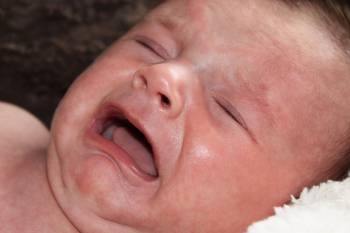Pertussis
 Pertussis, commonly referred to as "whooping cough" is an infection of the respiratory system caused by the bacterium Bordetella pertussis. It's characterized by severe coughing spells, which can sometimes end in a "whooping" sound when the person breathes in.
Pertussis, commonly referred to as "whooping cough" is an infection of the respiratory system caused by the bacterium Bordetella pertussis. It's characterized by severe coughing spells, which can sometimes end in a "whooping" sound when the person breathes in.
The highest incidence of infection occurs in infancy (less than 6 months old) who are either not received their pertussis vaccination, or have yet to complete the primary course of vaccination. Unfortunately, pertussis infections tend to be far more serious in the very young.
There is also an increased incidence among adolescents and adults due to waning vaccine immunity.
Incubation Period:
5 - 21 days
Transmission:
Pertussis is a highly contagious disease with an 80% attack rate in non-immune individuals. It is spread via respiratory droplets or by direct contact with nasal or throat secretions of an infected person.
Signs & Symptoms:
Typically, pertusis infections consist of 3 stages:
Catarrhal Stage (lasting 1-2 weeks): The first symptoms of whooping cough are similar to those of a common cold (runny nose, sneezing, mild cough and low-grade fever). Infants may experience apnoea (where there are episodes during which breathing stops), and respiratory distress.
Paroxysmal Stage (lasting 2-6 weeks): The mild, irritating cough of the catarrhal stage evolves into coughing spells/fits (usually a dry cough). During a coughing fit, the child may turn red in the face. At the end of a spell, the child may make a characteristic whooping sound when breathing in or may vomit. Between spells, the child usually feels well.
Convalescent Stage (lasting more than 2 weeks): During this stage, there is decreasing frequency and severity of the coughing fits.
Management:
After a thorough medical history and physical examination, a nasopharyngeal sample will be taken to test for the presence of the B. pertussis bacteria. Blood tests and a chest X-ray may also be done.
A confirmed case of whooping cough will be treated with antibiotics. Antibiotic treatment is most effective in shortening the duration of the infection when given in the first stage of the illness, before coughing spells begin. However, even if antibiotics are started later, they're still important because they can help shorten the infectious period thereby decreasing transmission.
Some kids with whooping cough need to be treated in a hospital. Infants and younger children are more likely to be hospitalized because they're at greater risk for complications.
Prevention and Control:
Routine childhood vaccination: This consists of primary imminisation - 3 doses of the DPT (diphtheria, pertussis and tetanus) vaccine at 3rd, 4th and 5th months, followed by the 1st booster of DPT at 18 months and the 2nd booster of Td or Tdap at 10-11 years.
The Tdap vaccine (tetanus-reduced diphtheria-acellular pertussis) should also be considered in adults who are in close contact with infants less than 12 months of age, women of childbearing age before conception or immediately after delivery, and healthcare providers who have direct patient contact.
The article above is meant to provide general information and does not replace a doctor's consultation.
Please see your doctor for professional advice.
